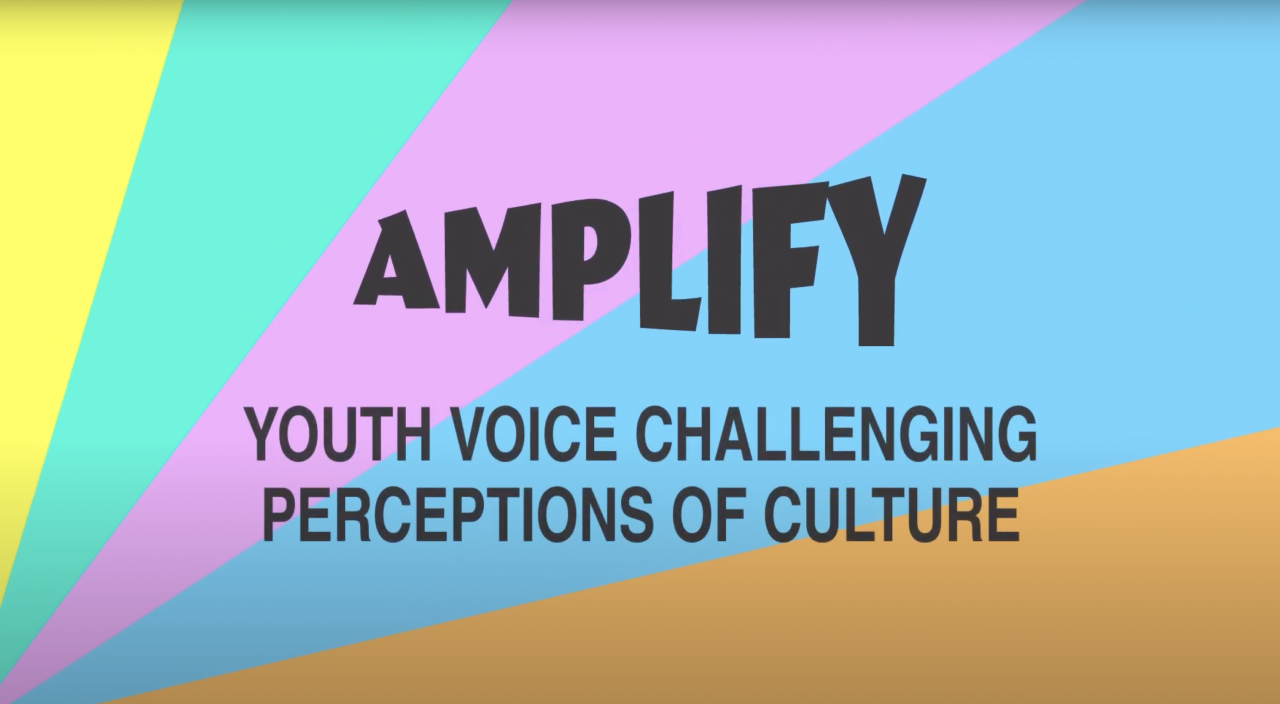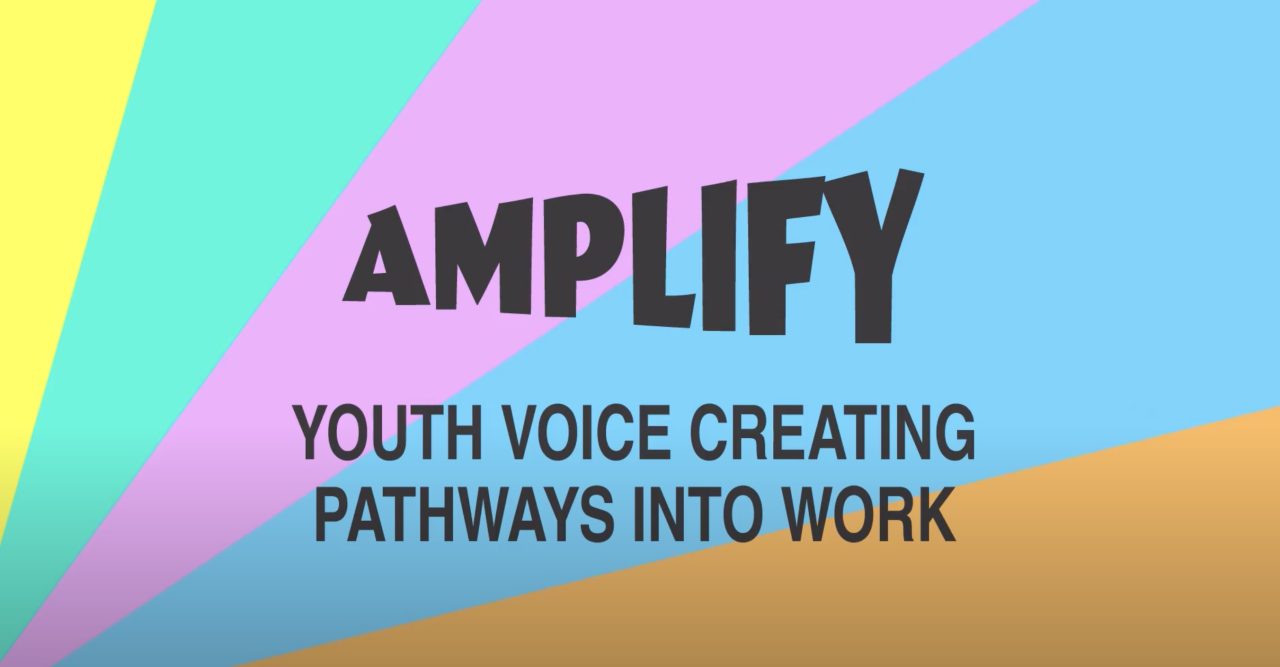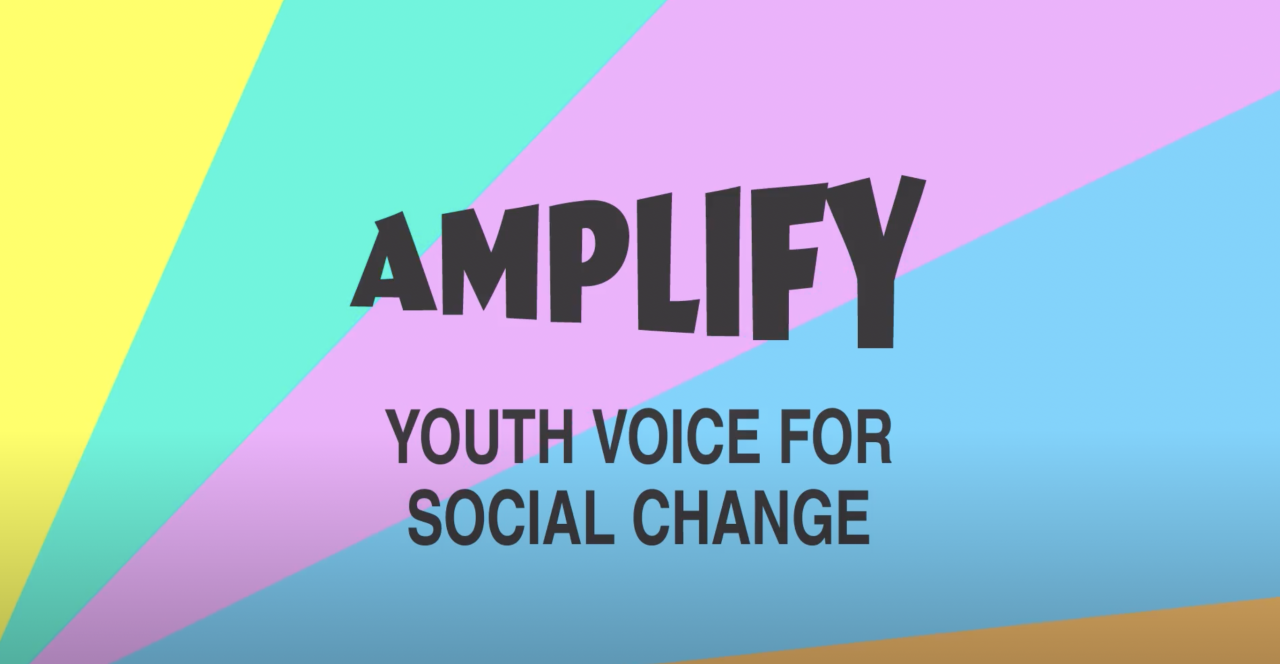Youth Voice and Disability
Empowering youth voice in SEND settings
- Culture & Heritage
- Film & Media
- Music
- Dance
- Literature
- Technology
- Visual Arts
- Theatre & Performance
- Disability
In this episode on youth voice and disability we visit Haringey Shed, an inclusive theatre and performing arts company in North London; Beacon Hill Academy, a special school in Essex for pupils aged 2-19 with severe and complex learning difficulties; and Collingwood, a school and media arts college in Northumberland.
In all three settings we see a commitment to the authentic representation and creative identities of young people with disabilities and additional learning needs. In Tottenham, Haringey Shed’s commitment to the inclusive, authentic representation of young creatives foregrounds youth advocacy: the ideas of young people are listened to, respected, and celebrated. At Beacon Hill, the staff work with young people to explore their unique strengths and needs, platforming their students’ voices both in school – through encouraging pupils to take an active role in exploring creative opportunities – and in the community, through inter-school inclusive arts programmes. At Collingwood, students are supported to express themselves through media – animation, film, sound, photography – and through a pupil-led arts council, giving students a direct line to school senior leadership.
Across all three places there is rich evidence for the importance of creativity in supporting youth voice and, simultaneously, for the importance of youth voice in developing a responsive creative and cultural offer. In amplifying the voices of their young people with disabilities, these three settings make space for inclusive creative expression that is celebratory, authentic, and representative.
- Jack Redfern, A New Direction
Haringey Shed
Ashling: My name is Ashling Foat. I am the participation manager here at Haringey Shed.
Haringey Shed is an inclusive performing arts company based in the heart of Tottenham, and we provide after school holiday clubs for young people in the area. We ensure that all points of view are heard and represented in the work that we do. So it requires us to make sure that we're speaking to the range of young people that we're working with, not just the person who is the most articulate or the one who has the most confidence or the one who has the loudest voice.
I think it's important that we fight to make sure that our young people's voices are heard because they know exactly what's going on in that area. They have things to say, and it's important that other people hear it. I think we need to be confident and also conscious as facilitators that we're not just asking the same people the same questions and that we are making more effort.
We're taking more time to reach those who may not have been heard before.
It doesn't come easy. It doesn't, it's not always the quickest and easiest way to get an answer and to represent voice, but it is the most authentic and important way.
Chris: Well with me, I come here because I started in the summer, last summer basically. And then I just kind of loved it here and I decided to, like, come back again. And I come everyday to the afterschool clubs. Do, like, the projects. Do, like, the half term projects and do, like, everything here 'cause it just seems so much fun. And it kind of increases my confidence a bit. In fact, a lot.
Michael: Being a staff member or an ambassador has really changed me because it is learning how to be with young people – 11 to 18 year olds. Yeah, it has changed me.
Kimberley: For me, I think it's… Haringey Shed is more like a family. So no matter – like your family could never judge you, never put you down or anything. It just feels like no matter, whether I'm having a bad day or I'm really happy, or I just want to do a bit of performing it just feels really welcoming.
Josiah: Doesn't really matter about race, ability, disability, it's just, everyone is seen in the same way.
Sezer: No matter the disability, if you're like,if you're in a wheelchair, if you can't walk properly, you'll always be welcome in this space and you'll always be treated the same way that other people are treated.
Nathan: It's amazing. And I want more people to come here and develop their learning skills
Sofia: When I first joined Haringey Shed, I noticed that it was very inclusive, that there were so many different opportunities that you were given and learned how to develop skills.
Ezekiel: When I first entered the space, I thought that I wouldn't be able to fit in, that I wouldn't be able to open up as myself. Then I met everyone. Everyone was friendly to me. Then I just opened up and now that's one of the best things that ever happened to me.
Beacon Hill
Amanda: We are a special academy for pupils aged 2 to 19. All our pupils have different strengths and needs and every pupil is supported here to follow their own personal learning adventures, to help them succeed.
Pupils, parents, families and school staff and other professionals all work together to plan and deliver exciting and challenging learning activities for everyone.
Gwyneth: And when our students join the school, their world is quite often very small and quite limited. And in school, they begin to access a range of sensory activities such as tactile exploration, music, creative movement, sound and light. And these experiences help our students begin to understand themselves and begin to understand the world around them.
As they get older and their preferences become clearer, this understanding helps us allow the students to have a say in what sessions they would like to join and what experiences they would like to have more of. This is how we develop and personalise each student's learning journey.
They may wish to pause or stop or even change their mind regarding what they like.
Amanda: Supporting students to have a voice impacts their lives in many ways. The more experiences our students have and input they can have helps them to gain a greater understanding of themselves, their bodies and the worlds around them. As students gain this understanding of self and can begin to access the world and the people around them, they can move from an isolated to a shared experience with the adults who support them, their peers and people in the wider community.
This opens lots of new opportunities for the students and allows them to develop meaningful relationships with others.
When their voice is heard, it enables them to take part in activities that they choose and enjoy, resulting in a better emotional well-being as well as improving development of their skills.
Gwyneth: The arts provide our students with a holistic way of exploring all their senses. Dance allows them to explore their body. Music, their voice and their hearing. Art allows them to touch, to feel, and all of these help them to explore their emotions and develop their minds and creativity.
There is no other medium available that allows this.
We can also use the arts to help students develop an understanding for concepts that may be otherwise inaccessible to them.
They may not have the receptive language skills to understand the names of feelings, but we can use music, movement and colours to help represent these.
Amanda: We try to ensure that our pupils' voice is authentic in all areas of their day. We endeavour to listen to their voice by stopping, observing and then developing a response based on how we know they communicate.
We recognise the importance of reading the moment and then going with students' responses.
Over the years and through the work we have done with Thurrock Trailblazer, we have established strong partnerships with other schools and a variety of cultural partners. This helps us to encourage our student voice.
We have developed an inter-school inclusive arts programme where students from different schools and with different abilities come together to access a chosen arts project and develop relationships and friendships alongside other aims.
These projects have helped us to give our students a voice among their peers and in their local community. And also ensure that their choices, opinions are heard and valued.
Collingwood School & Media Arts College
Mark: Well being a media arts college, creativity is really central to everything we do at Collingwood. We're very fortunate to have the tools at our disposal for our young people to be able to have a voice. So we're sitting here in our wonderfully equipped media centre. We have editing facilities, we have all kinds of equipment where our young people, especially those with ASD, actively want to use it.
Also, for a lot of young people who normally would be reluctant to speak out, they can do it through the medium, so through the media of animation, through film, through sound recording, all of which are things that they want to learn to do.
Joel: I feel like it is a good opportunity to be able to express myself using media arts and the way we do it is very good. Someone had taken pictures of famous landmarks across the north east and we were printing out and editing those. It's changed my art style. So that's changed a lot. I was going to do just objects, now I think landmarks are going to be a big step if I want to do more art.
I have a voice through music. I have a voice through activities. I have a voice through my art.
Mark: We've had a circus skills dance company come into school, which the pupils absolutely loved, and it was full of sensory activities which greatly appealed to our children. We had a very small theatre company that came with a panto, which was great because that was during lockdown. The kids wouldn't have had that otherwise. And the day before yesterday, we had a local band who are largely young adults with autism, and that was hugely inspiring for our young people.
And when you talk about them finding a voice, we had kids who got up and jammed and performed with the band for the very first time in their lives in front of audiences.
Eve: Working with the orchestra was cool, amazing and exciting. I sang with the band and I was singing a lot.
Mark: So we had our own arts council. We consulted them first and they very much told us that they wanted to see live music. They told us that they wanted to do active stuff like circus skills, and we just tried to fit in as much as possible, what we provided. with what's out there and with what they wanted.
Lewis:Well, my voice is heard by taking part in the school council and what I do there is make the school better and how we can make all the students happier.
Evan:I think about the school is how it kind of brings the students to another world. I think what makes Collingwood so different is it focuses on people's issues and tries to find the best way to help them. So like, say, another school wouldn't help as much as this. They wouldn't prioritise as much on the mental health.
Lewis: Some people have like mental health issues and the school like really listen to that and they try to help in different ways. What possible way could be better.
Evan: I find it very special because it also, instead of teaching them in the real world, they can also teach them in the virtual world, so know how to do more stuff in the future.
Lewis: Well I think it's magical because you can learn by all of it. And maybe when you're older, you can be like a media person, make films and stuff, be really useful.
Mark: So a lot of pupils with autism will pretty much live in their bedrooms once they get home. They're not in the community. Coming here is where they get their chance.
Haringey Shed
Haringey Shed is an inclusive theatre and performing arts company for children and young people based in Haringey, North London.
You can hear what they have to say from 00:05 in the video
Beacon Hill Academy
Beacon Hill Academy is a special academy in South Ockenden, Essex, for pupils aged 2-19 who have severe and complex learning difficulties.
You can hear what they have to say from 03:52 in the video.
Collingwood School & Media Arts College
Collingwood is a school and media arts college based in Morpeth, Northumberland, and hosts a complete media suite with animation, sound and video recording and editing facilities.
You can hear what they have to say from 07:35 in the video
Haringey Shed
Beacon Hill
Collingwood School & Media Arts College
Jess’s story: Overcoming isolation through music in lockdown
This is an interview with disabled musican Jess Fisher whose creative social action project was funded by The Mighty Creatives. You can watch a video of it here
3 top tips for ‘at home’ sensory play ideas for young children and children with additional needs
These top tips come courtesy of Egg Box Theatre, a Lincolnshire based company producing interactive and immersive theatre for young audiences
Attenborough Arts Centre and 9 SEN schools in Leicester and Leicestershire are exploring new ways to learn, discover and develop together, drawing on the principles of Reggio Emilia.
The Nurture Network is Attenborough's Sensory Artists' Network, where you can discuss participatory art, inclusive delivery and more
How do you provide support while maintaining the authenticity of youth voice?
A summary blog of an Artsmark Connects event exploring how to support SEND pupil voice in the arts


